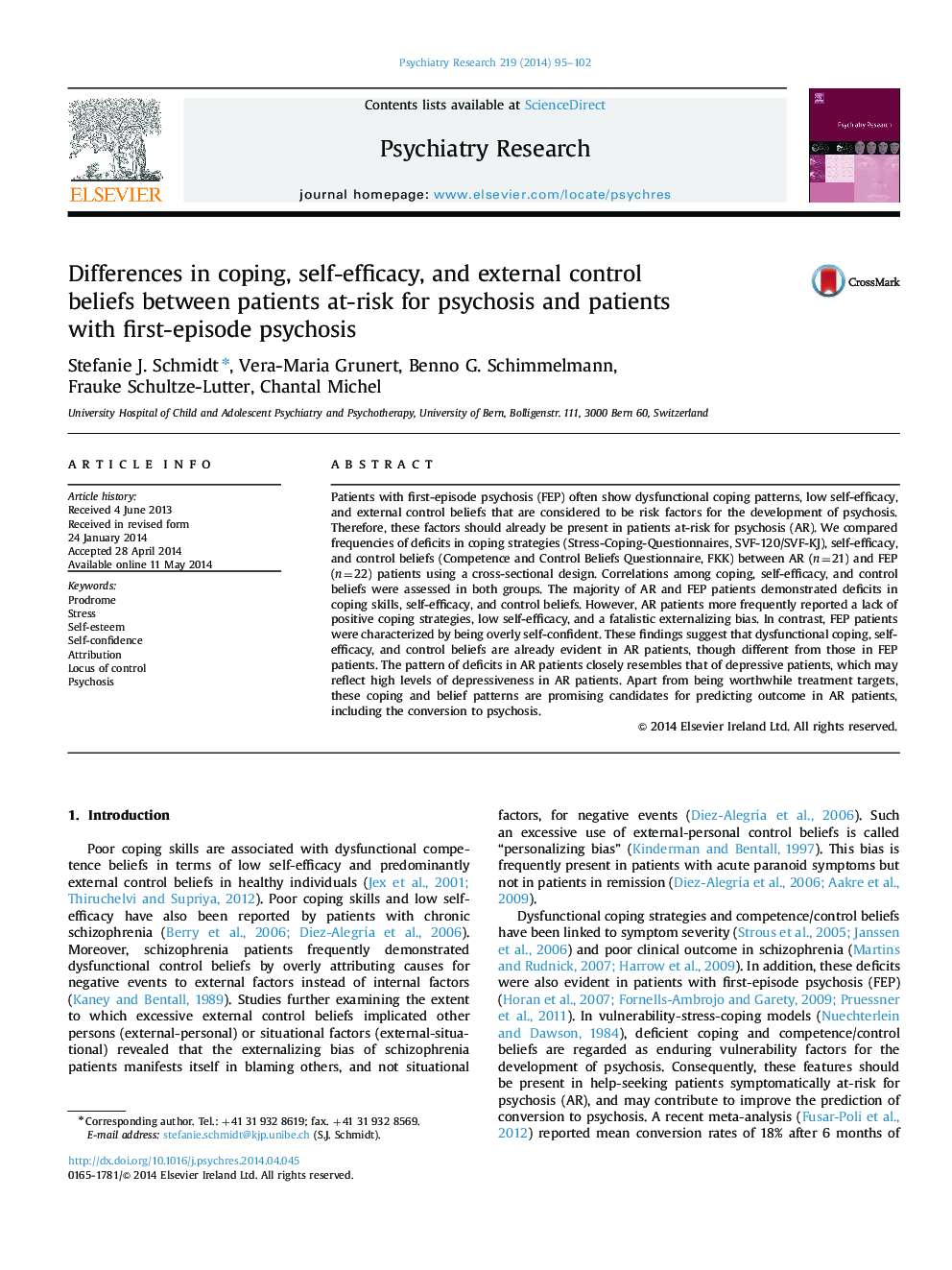| کد مقاله | کد نشریه | سال انتشار | مقاله انگلیسی | نسخه تمام متن |
|---|---|---|---|---|
| 332938 | 545881 | 2014 | 8 صفحه PDF | دانلود رایگان |
Patients with first-episode psychosis (FEP) often show dysfunctional coping patterns, low self-efficacy, and external control beliefs that are considered to be risk factors for the development of psychosis. Therefore, these factors should already be present in patients at-risk for psychosis (AR). We compared frequencies of deficits in coping strategies (Stress-Coping-Questionnaires, SVF-120/SVF-KJ), self-efficacy, and control beliefs (Competence and Control Beliefs Questionnaire, FKK) between AR (n=21) and FEP (n=22) patients using a cross-sectional design. Correlations among coping, self-efficacy, and control beliefs were assessed in both groups. The majority of AR and FEP patients demonstrated deficits in coping skills, self-efficacy, and control beliefs. However, AR patients more frequently reported a lack of positive coping strategies, low self-efficacy, and a fatalistic externalizing bias. In contrast, FEP patients were characterized by being overly self-confident. These findings suggest that dysfunctional coping, self-efficacy, and control beliefs are already evident in AR patients, though different from those in FEP patients. The pattern of deficits in AR patients closely resembles that of depressive patients, which may reflect high levels of depressiveness in AR patients. Apart from being worthwhile treatment targets, these coping and belief patterns are promising candidates for predicting outcome in AR patients, including the conversion to psychosis.
Journal: Psychiatry Research - Volume 219, Issue 1, 30 September 2014, Pages 95–102
